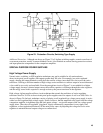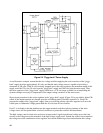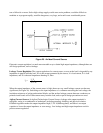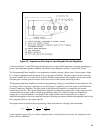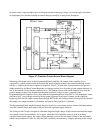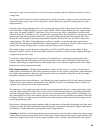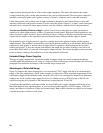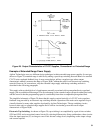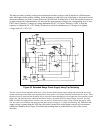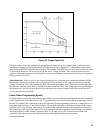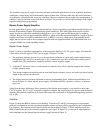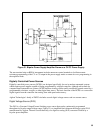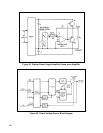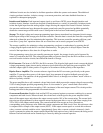
51
Figure 28. Output Characteristics of CV/CC Supplies, Conventional vs. Extended Range
Example of Extended Range Power Supply
Agilent Technologies uses two different design techniques in their extended range power supplies. In one type,
shown on Figure 29, extended range is achieved by adding a special tap switching network ahead of a standard
CV/CC series regulated feedback loop. A more recent design, utilizes a regulator type whose output
characteristic naturally assumes the shape of Figure 28(B), without the need for an electronic tap switching
network. However, for convenience, only the extended range supply with the tap switching network is
described in the following paragraphs.
This supply achieves the high level of performance normally associated with a preregulated/series regulated
supply; plus two additional advantages. The first advantage is the extended range concept described previously
and the second is that the programming speed is considerably faster than a comparable preregulated unit.
The simplified schematic of Figure 29 shows that this supply consists basically of a CV/CC series regulator
feedback loop preceded by an electronic tap switching network. Operation of the main series regulator loop is
virtually identical to many other supplies developed by Agilent Technologies. The tap switching circuits,
however relate only to extended range supplies and it is these circuits that govern the overall output
characteristic of Figure 28(B).
Electronic Tap Switching. As shown on Figure 29, tap switching is accomplished by a pair of triac switches
(CR1 and CR2) and an associated control circuit. By selecting different triac firing combinations, these circuits
allow the input capacitor (Cl) to charge to one of four discrete voltage levels, depending on the output voltage
and current required.



